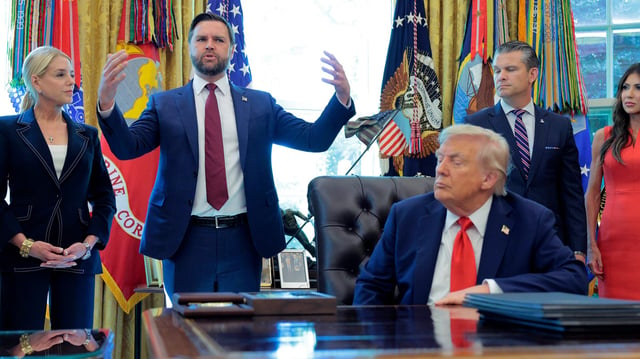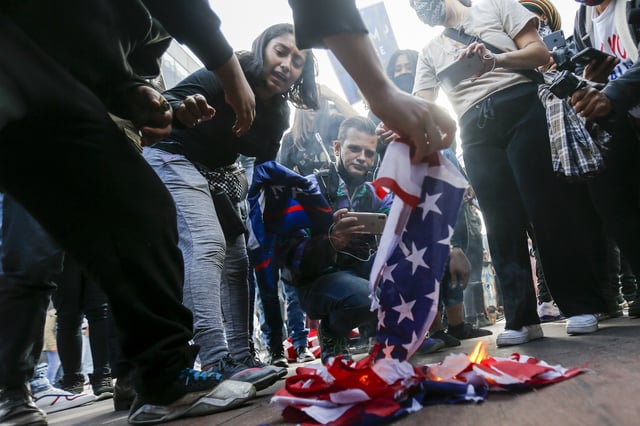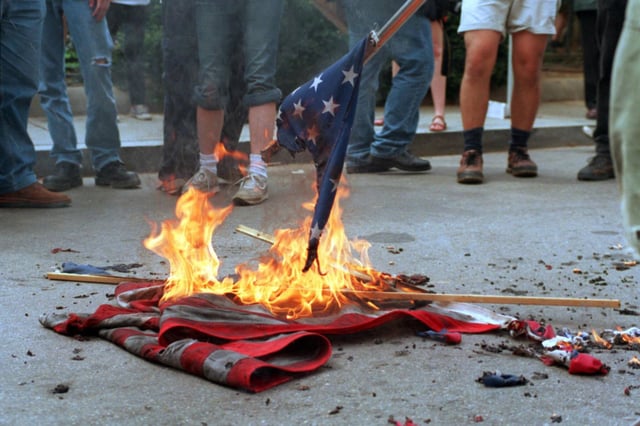Overview
- President Trump’s Aug. 25 executive order tells Attorney General Pam Bondi to “vigorously prosecute” acts involving flag desecration and to seek litigation narrowing First Amendment exceptions.
- The order also calls for referring potential violations to state and local authorities and contemplates immigration consequences for noncitizens who destroy flags.
- Hours after the order, a man who identified himself as a 20-year Army veteran burned a flag outside the White House and was detained by the Secret Service before U.S. Park Police arrested him for lighting a fire in a public park.
- Legal experts note that Texas v. Johnson protects flag burning as symbolic speech and say an executive order cannot criminalize it, setting up likely court challenges to prosecutions brought under adjacent, content-neutral laws.
- Trump said flag burning “incites riots” and claimed offenders would face one year in prison, but the order does not create a new crime or specify such a penalty, and some conservatives publicly defended flag burning as protected speech.



